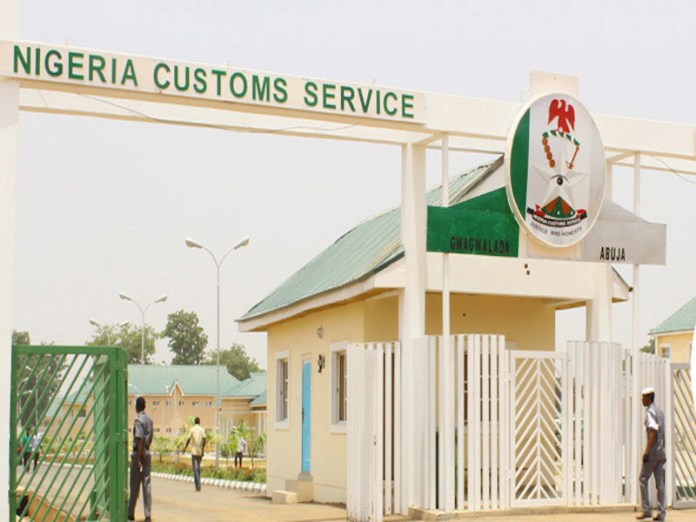- Customs Record Highest Monthly Revenue of N140.4bn
The Nigeria Customs Service on Tuesday said it recorded its highest-ever monthly revenue collection of N140.41bn in August.
The Public Relations Officer, NCS, Mr Joseph Attah, confirmed the revenue collection figure in a statement issued in Abuja.
The statement explained that the Comptroller-General of Customs, Col Hameed Ali (retd), described the huge revenue collection as a confirmation of the success of the reforms being implemented under his leadership.
Some of the reforms, according to him, are the strategic deployment of manpower; upgrade of the electronic systems from Nigeria Integrated Customs Information System to NICIS II, which has blocked leakages; and strict enforcement of extant guidelines by the Tariff and Trade Department.
Other reforms, which led to the improved revenue generation, he noted, were robust stakeholder engagements resulting in higher compliance; and increased disposition of officers and men to change the way of doing things for the better.
The statement read in part, “Ali’s implementation of the three-pronged presidential mandate of restructuring, reform and raising of revenue in the NCS has continued to strengthen the Service as a crucial contributor to the national economy and security.”
In the area of seizure, the statement said in the last eight months, the NCS had confiscated 156,090 bags of smuggled rice; 15,632 sets of military wears; 489,000 ammunition and other items.
It added, “These positive harvests in the areas of anti-smuggling and revenue generation is a clear testimony to what can be achieved under a selflessly focused leadership.
“The NCS therefore calls on Nigerians to support the Service by providing credible information that will help nip smuggling in the bud and generate the needed revenue for national development.”
Ali had last week inaugurated a high-powered investigative panel to fish out all those connected with the illegal importation of military wares.
The committee headed by Assistant Comptroller-General, Sanusi Umar, is to conduct thorough investigation into the recent importation of military camouflages into the country.
The CG had said that preliminary investigations had led to the arrest of five persons, including the importer.
He noted that despite the arrest of the five people, there was a need for the NCS to conduct thorough investigation to unravel others who might be connected with the importation of the illegal items.
“Even though preliminary investigations have led to the arrest of five persons, including the importer of both consignments, it is imperative that a painstaking investigation is conducted to unravel all those who are remotely connected to the criminal importation, with a view to punishing offenders and preventing reoccurrence,” Ali had stated.
The committee is to investigate all alleged breaches of the Customs Import Clearance Procedure as set out in its extant law and statute books.
The panel is also to investigate and establish the full facts of the case in relation to the importation of the imported military wares.
The committee is also saddled with the task of identifying all parties involved in the illegal importation and establish their degree of culpability, and to profile all importation previously made by the sole importer or his cronies, with the intent of discovering if this has been a trend.


 Naira4 weeks ago
Naira4 weeks ago
 News3 weeks ago
News3 weeks ago
 Education4 weeks ago
Education4 weeks ago
 Social Media4 weeks ago
Social Media4 weeks ago
 Economy4 weeks ago
Economy4 weeks ago
 Investment4 weeks ago
Investment4 weeks ago
 Dividends4 weeks ago
Dividends4 weeks ago
 Business3 weeks ago
Business3 weeks ago




























